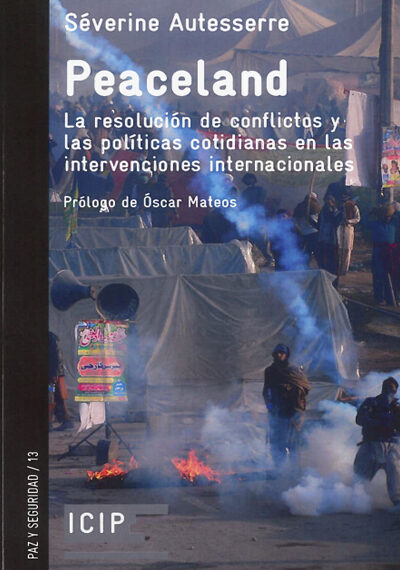
Autesserre, Séverine. Peaceland. La resolución de conflictos y las políticas cotidianas en las intervenciones internacionales. Barcelona: Institut Català Internacional per la Pau, 2018.
This book provides a new explanation about why international peace interventions do not usually reach their maximum potential. Based on many years of ethnographic research in conflict zones around the world, the book shows that everyday elements – such as the social habits of expats and common approaches to understanding their areas of operation – have a great influence on the effectiveness of the peacebuilding process.
Individuals from all over the world and with very diverse perspectives, share many practices, habits and narratives when they are involved in conflict zones. These common attitudes and actions make it possible for foreign peace builders to work on the ground, but they also often cause consequences that, unwittingly boycott international efforts. Some expats already apply other ways of doing and thinking, often with remarkable results, but they remain a minority. Through a deep analysis of daily life and the work of agents acting on the ground, Peaceland proposes alternative ways to help local people to build a lasting peace.
The author
Séverine Autesserre is a Professor of Political Science, specialized in International Relations and African Studies, at Barnard College, University of Columbia. Her work has been published in numerous academic and dissemination magazines. She is also the author of the book The Trouble with the Congo: Local Violence and the Failure of International Peacebuilding (Cambridge University Press, 2010), with which she won the Grawmeyer Prize for Ideas that contributed to improving the world order in 2012.
Prior to entering the academic world, Autesserre worked on various humanitarian projects with organizations such as Doctors Without Borders and Doctors of the World in Afghanistan, Kosovo, R.D of the Congo, Nicaragua and India.
